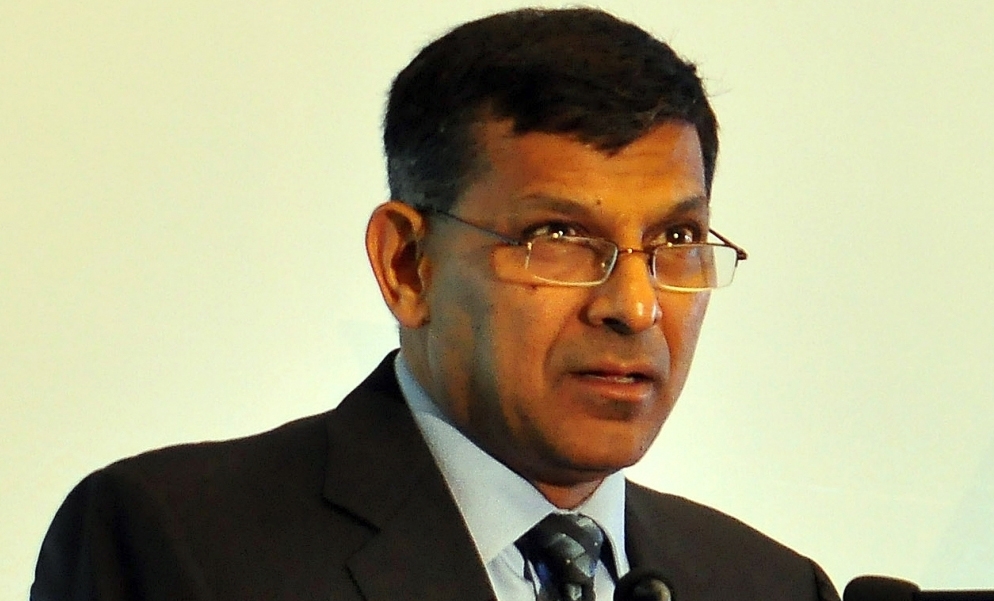New Delhi, April 5 (IANS) Former RBI Governor Raghuram Rajan has said that due to the coronavirus crisis, India currently faces the greatest economic emergency since its independence. He noted that although the global financial crisis in 2008-09 had a severe impact on the country, economic activity was going on and India's financial system was largely sound. Currently, none of the fundamentals are positive, he observed. "Economically speaking, India is faced today with perhaps its greatest emergency since Independence. The global financial crisis in 2008-09 was a massive demand shock, but our workers could still go to work, our firms were coming off years of strong growth, our financial system was largely sound, and our government finances were healthy. None of this is true today as we fight the coronavirus pandemic," Rajan said in a note on LinkedIn. He, however, said that there is no reason to despair and with the right resolve and priorities, and drawing on India's many sources of strength, it can beat this virus, and even set the stage for a much more hopeful tomorrow. Rajan said that the immediate priority is to suppress the spread of the pandemic through widespread testing, rigorous quarantines, and social distancing. "The 21-day lockdown is a first step, which buys India time to improve its preparedness. The government is drawing on our courageous medical personnel and looking to all possible resources -- public, private, defense, retired -- for the fight, but it has to ramp up the pace manifold." He said that tests will have to be done significantly increased to reduce uncertainty on where the hot spots are, and some personnel and resources will have to be kept mobile so that they can be rushed to areas where shortages are acute. Rajan also said that the country must plan now for what happens after the lockdown if the virus is not defeated. "It will be hard to lock down the country entirely for much longer periods, so we should also be thinking of how we can restart certain activities in certain low-infection regions with adequate precautions," the noted economist said. About the under-privileged who have suffered due to the lockdown, he noted that India needs to ensure that the poor and non-salaried lower middle class who are prevented from working for longer periods can survive. Direct transfers to households may reach most but not all, as a number of commentators have pointed out, he added. Furthermore, the quantum of transfers seems inadequate to see a household through a month, he said. According to Rajan, the states and Centre have to come together to figure out quickly some combination of public and NGO provision of food, healthcare, and shelter, private participation, and direct benefit transfers that will allow needy households to see through the next few months. "We have already seen one consequence of not doing so - the movement of migrant labour. Another will be people defying the lockdown to get back to work if they cannot survive otherwise," he said in the note. Rajan said that the country's limited fiscal resources are certainly a worry, but spending on the needy at this time is a high priority use of resources. "This does not mean that we can ignore our budgetary constraints, especially given that our revenues will also be severely affected this year," he said. "A ratings downgrade coupled with a loss of investor confidence could lead to a plummeting exchange rate and a dramatic increase in long term interest rates in this environment, and substantial losses for our financial institutions. "So we have to prioritise, cutting back or delaying less-important expenditures, while refocusing on immediate needs. At the same time, to reassure investors, the government could express its commitment to return to fiscal rectitude, backing up its intent by accepting the setting up of an independent fiscal council and setting a medium-term debt target, as suggested by the N.K. Singh committee." Large firms can also be a way to channel funds to their smaller suppliers. They usually can raise money in bond markets and pass it on, he said, adding that corporate bond markets are not very receptive to issues currently. Banks, insurance companies, and bond mutual funds should be encouraged to buy new investment-grade bond issuances, and their way eased by the Reserve Bank of India agreeing to lend against their high-quality bond portfolios through repo transactions. The RBI Act will have to be changed to enable the central bank to undertake these transactions, and it will have to apply suitable haircuts to these portfolios to minimise its credit risk, but it will be a much needed support to corporate borrowing, he said. "The government should also require each of its agencies and public sector units, including at the state level, to pay their bills immediately, so that private firms get valuable liquidity," Rajan said.
India faces greatest economic emergency since Independence: Raghuram Rajan
- by Rinku
- April 05, 2020 2 minutes

Former RBI Governor Raghuram Rajan.(File Photo: IANS)











